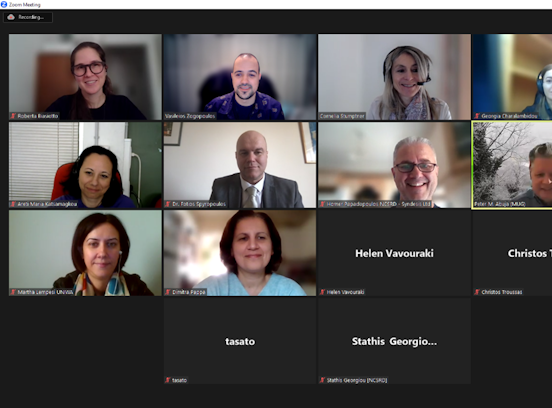Institute for Biomedicine - News & Events - New publication on public preferences for sharing digital health data
New publication on public preferences for sharing digital health data
According to the results of the study, which involved residents of 12 countries, Europeans express a desire for openness and supervision in sharing their digital health information.
- English
The utilization of digital health information has evolved into a valuable resource for research, as entities in both the public and private sectors vie for access to health-related data from the European populace. A recent preference analysis involving residents across 12 European countries and recently published in the Journal of Medical Internet Research, underscores the imperative of prioritizing transparency and oversight to garner public acceptance for utilizing data across diverse contexts.
Digital health data is amassed within the realms of healthcare, research, and public health. These data serve as valuable assets for public health authorities, healthcare systems, academic researchers, and private sector entities. Although European legislation facilitates cross-border data-sharing, there are still gaps in understanding citizens' perspectives. The aforementioned preference study, involving over 5,000 residents from Austria, Denmark, France, Germany, Iceland, Ireland, Italy, the Netherlands, Norway, Spain, Sweden, and the United Kingdom, sheds light on how individuals in various European countries weigh different facets of digital health data sharing.
The objective of the study is to comprehend how the European public assesses different aspects of digital health data sharing in varied contexts. The survey was structured as a Discrete Choice Experiment, enabling researchers to gauge how individuals evaluate different attributes against each other. The outcomes, as per the authors, can guide policy directions and harmonization initiatives.
The findings underscore the significance individuals place on information regarding digital data sharing and the associated review processes, indicating a concern for transparency and oversight. Notably, there is a higher level of acceptance for sharing health data with national authorities and academic research projects compared to commercial entities. Individuals express a preference for being informed and giving consent for the utilization of their data.
The authors advocate for flexible governance approaches that cater to individual needs across diverse countries. They propose that interactive dynamic informed consent models, incorporating integrated oversight mechanisms, could pave the way for tailored governance strategies. Such approaches would empower individuals to express their preferences and exert control over the extent to which their data is shared in different contexts.
Full article on Journal of Medical Internet Research






